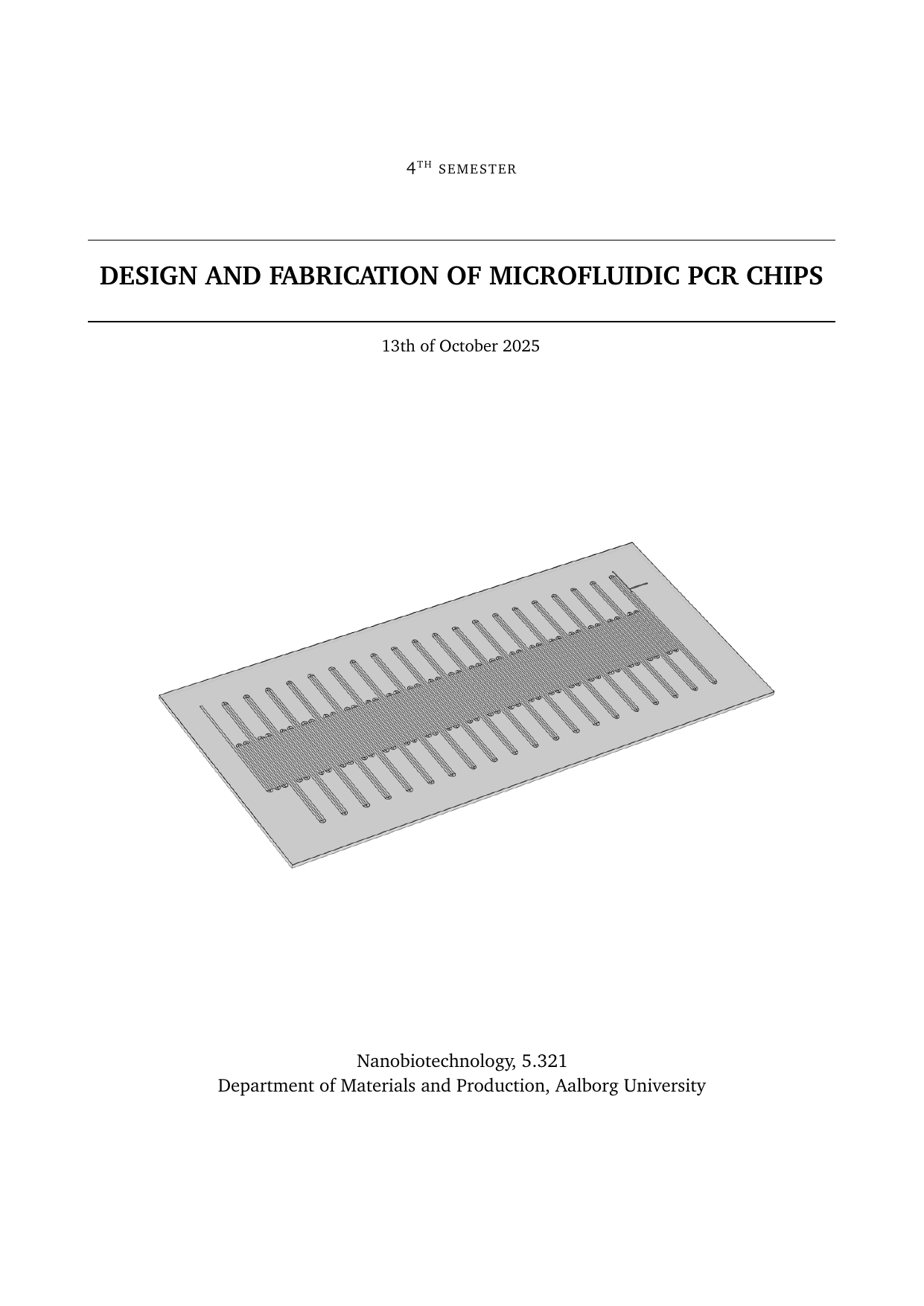
Design and Fabrication of Microfluidic PCR Chips
Authors
Term
4. semester
Education
Publication year
2025
Submitted on
2025-10-12
Pages
46
Abstract
Continuous-flow PCR systems are known to decrease the thermal mass compared to conventional thermocyclers by maintain- ing constant temperature zones. This re- sults in faster PCR completion while lim- iting reagent consumption. These meth- ods are easily inhibited by the adsorb- tion of PCR components due to their large surface-to-volume ratios. Droplet-based PCR circumvents this by eliminating the contact between the sample and the de- vice’s surface. In this paper, the design and fabrication of a continuous-flow fixed-loop droplet-based PCR on a chip, which is ca- pable of 25 cycles, were investigated. The chip was fabricated by etching microflu- idic channels into silicon with a T-junction integrated into the design. The channels of the chip were capped off with a PDMS coverplate. The heat distribution of the device was first simulated. Stable temper- ature regions were generated using one resistive heater and one Peltier heater on two edges of the chip. Copper blocks were used to further define the regions by using two heating elements to define the anneal- ing and denaturation zones, while relying on the gradient formed by heat exchange to form the extension zone. The device is capable of generating stable and uniform droplets. The PCR product of the chip was found to be shorter than expected.
Keywords
Documents
